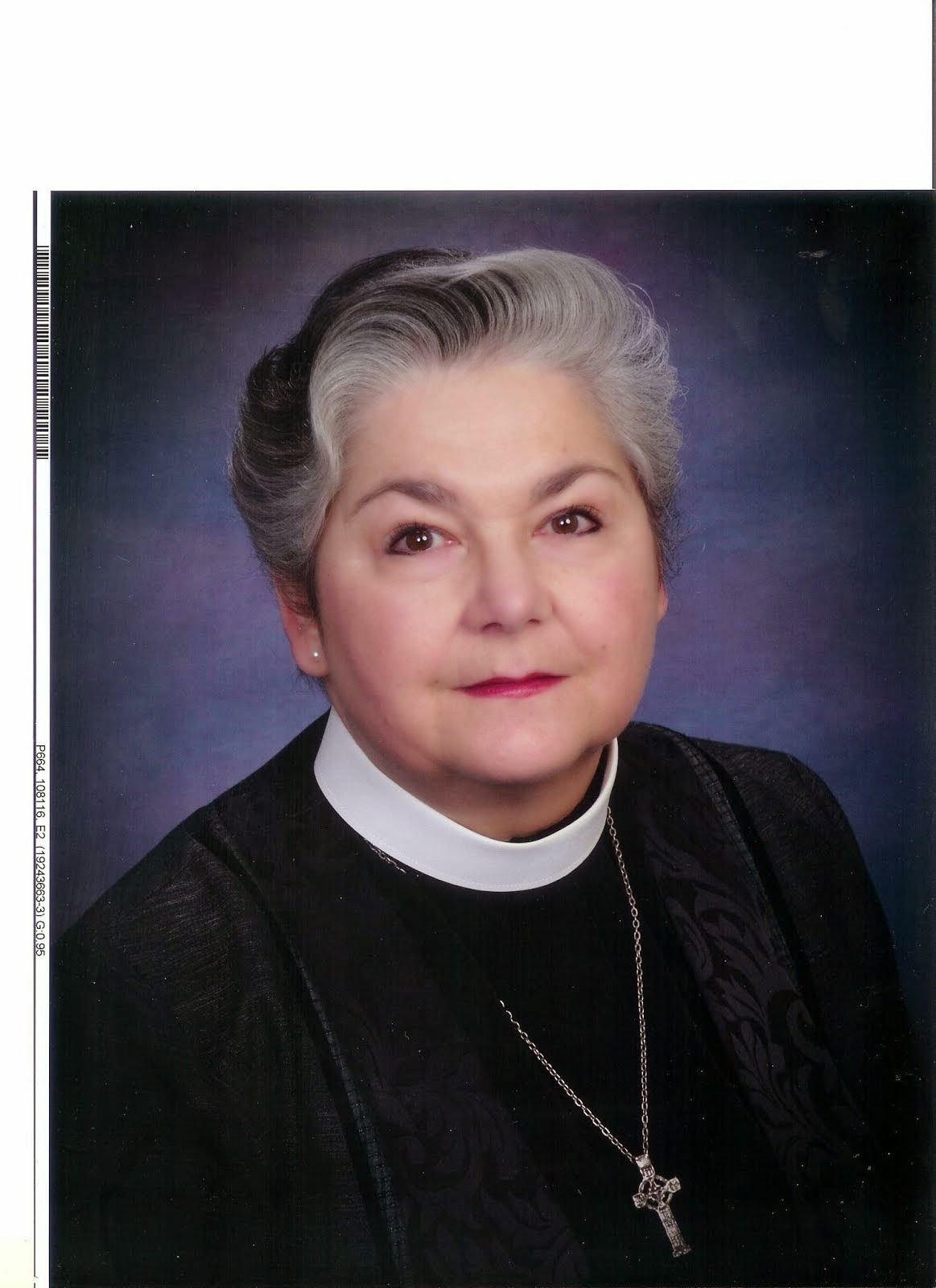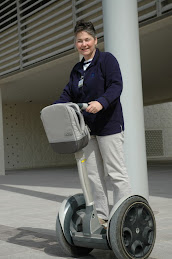The email was
circulated around Mayo House on a Monday. Its message was cryptic: “Expect a
very special guest on Thursday morning.” I read it and promptly forgot it. I
should, of course, have noted it on my calendar. My life is inscribed on my
calendar. If I cannot find my IPhone, I am lost, because everything goes onto
that calendar. But this time, I didn’t write it on the calendar. Perhaps a more
pressing problem distracted me, perhaps I had a meeting to go to, perhaps I
thought I’d remember this on my own – HAH! – but I made no note of it. Thursday
morning came. I had no meetings scheduled either in the office or outside of
the office so I dressed casually. Jeans, an open-collared blouse, sneakers.
Neat, of course, and not sloppy, but certainly not what I would have chosen to
be wearing when, later that day, the Archbishop of Canterbury Justin Welby showed
up at Mayo House with his family. Our special guest, and I looked like a soccer
mom on the way to Costco.
Ah, well, I wasn’t
prepared. All my desires to stay on top of the five thousand things on my plate
were for naught. All of my obsessive desire for control failed me. It’s my
pathology, this need for control, but I suspect I am not alone.
How many of us
here are willing to claim the fact that we are control freaks? How many of us
make lists? Some of us even add things to our lists simply so we can check them
off…hmmm, got up and washed my face: CHECK! We have our schedules, our
calendars…I’ve now gotten in the habit of checking my calendar on my phone
first thing every morning simply so that I can be sure I don’t inadvertently
miss something, and so I’m dressed appropriately. Thank you, Archbishop Welby!
So anyway, because I like to be in control, I now check that calendar, just in
case.
But for all our
desire to be in control, things happen that thwart our desire. Labor starts two
months early. You’re asked to participate in a meeting you hadn’t been told
about in advance. The doctor isn’t there at the time of your appointment
because she is attending to another patient’s emergency. The big contract for
your employer isn’t signed so you lose your job.
And then there is
the truly heartbreaking stuff, like this: you go to church on Sunday looking
forward to hearing God’s Word and a man comes in and kills or wounds many of
the parishioners.
Things happen,
and it’s out of our control. What’s a follower of Jesus Christ to do?
It certainly
doesn’t help when we’ve got a Gospel reading like today’s, where the whole
message is about being prepared. The thrust of the text is that we are to be
prepared for the second coming of Christ, because in those early days of the
church, the belief was that Jesus would be making his return trip pretty darned
soon. You get the drift: Jesus is the bridegroom, the church is the
bridesmaids, and the church had better be ready.
But here’s the
interesting thing about this parable, the thing that might provide comfort to
us control freaks who think “how can we possibly be ready for ANYTHING?”
All of the
bridesmaids fall asleep waiting. They don’t need to be awake nonstop until the
bridegroom shows up. They rest. The smart ones have prepared, but not by
putting together a list. They simply have attended to the one thing that is
necessary – to have enough lamp oil to light the way when the groom arrives.
There is one thing that they need to do – be able to shine a light for the
groom – and they’ve prepared for that.
That’s a whole
lot more possible than the list with a thousand check boxes on it to cover
every single thing that can go awry.
Imagine your
list: Cipro antibiotics, a shield that a gunshot couldn’t penetrate, spare
batteries for the cellphone, reading material, a down sleeping bag, extra
socks, dried meals, first aid supplies…we could go on with the list for hours,
couldn’t we? There’s a whole industry built around the possibility of doomsday
and the need to be prepared to survive – adherents are called “preppers” and
stockpile massive quantities of things in bunkers or storehouses, just in case.
But what is truly
necessary? What do we really need to prepare ourselves for any contingency?
One word: Jesus.
One faith: Jesus. One hope: Jesus.
If you don’t
believe me, take a look at the Epistle today: the message is clear. Stuff will
still happen. We cannot prevent it. But we know that when it happens, Jesus is
with us. And if the ultimate thing we fear happens – that we are going to die
(and believe me, we will all die at some point, no getting around it) – if that
happens, who is with us through it and on the other side of it? Jesus.
What does Paul
write to the Thessalonians? “For the Lord himself, with
a cry of command, with the archangel's call and with the sound of God's
trumpet, will descend from heaven, and the dead in Christ will rise first. Then
we who are alive, who are left, will be caught up in the clouds together with
them to meet the Lord in the air; and so we will be with the Lord forever.”
We cannot prepare
for every eventuality, but we are assured that the one thing we most need no
matter what happens will always be there: Jesus. He does not abandon us. He
promises those who believe in him eternal life. It’s hard to imagine what
eternal life will be like, but in my heart I believe that it will be infinitely
amazing, infinitely joyous, infinitely filled with love. And it’s my belief in Jesus
and in that promise that I try to carry me with me every day, even when I shake
my head over the insanity of the world, even when I grieve the loss of 26
people in a church in Texas, half of whom were children and babies shot at
point-blank range, even when I pray for a friend whose cancer has returned. I
cannot prepare for everything, but I can prepare for the one thing I need and
the world needs: Jesus, the savior and the promise.
But if you still
want to prepare for any contingency, for a mere $269 dollars, go online. A
company called Stealth Angel will provide you with a 72 hour emergency kit for
two persons. Pretty fancy, complete with a backpack and a bucket.
Me? I’m relying
on Jesus. He’s around for a whole lot longer than 72 hours, and all he asks is
our faith and love.
Amen.








